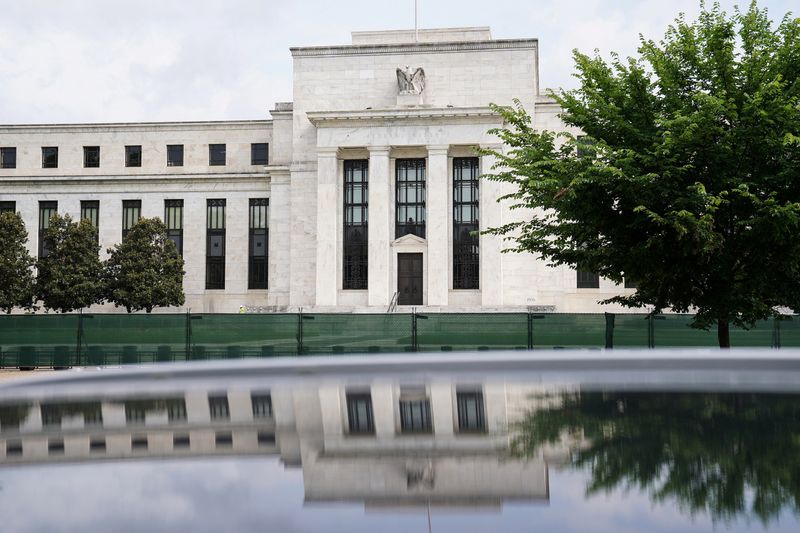By Yasin Ebrahim
Investing.com -- The Federal Reserve on Wednesday raised interest rates by 75-basis points for the second-straight meeting and reiterated that further hikes would be appropriate to curb "elevated" inflation, which is weighing on global economic activity.
The Federal Open Market Committee raised its benchmark rate to a range of 2.25% to 2.5% from 1.5% to 1.75% previously.
In support of its goals - to achieve maximum employment and inflation at the rate of 2 percent over the longer run - the Fed said it "anticipates that ongoing increases in the target range will be appropriate."
In the weeks leading up to the decision, bets on a much larger rate hike had gripped investor attention following data showing inflation hit a fresh four-decade high last month.
But Fed members quickly downplayed the need for a much larger hike, saying that a 0.75-point increase would be appropriate to keep the central bank on its path to move to a restrictive stance to bring down elevated inflation pressures.
The Fed’s policy measures – aimed at curbing demand to stifle inflation – appear to be having the desired impact as the latest data and quarterly reports from consumer sensitive sectors including retailers have flagged concerns about slowing economic growth.
But many worry that in its fight against inflation, the Fed may slow the economy by too much, avoid the so-called soft landing and tip the economy into recession.
Fed members, while acknowledging signs of a slowing economy as "recent indicators of spending and production have softened," continued to point to the"robust" job gains in recent months as a sign of economic strength. "[J]ob gains have been robust in recent months, and the unemployment rate has remained low," the fed said in a statement.
Others argue, however, that should high inflation persist, then it will only be a matter of time before the economy enters recession.
“There will almost certainly be a recession if inflation continues to stay high in the next 12 months," Will Rhind, founder and CEO, GraniteShares told Investing.com in an interview on Tuesday. “Consumers are getting squeezed because the cost of goods and services is rising and the cost to borrow money is going up.”
The ongoing inversion in the Treasury yield curve, meanwhile, continues to signal that the “market feels it’s least likely that Fed will be able to pull off the miraculous soft landing, whereby we avoid recession and inflation starts to come down,” Rhind added.
